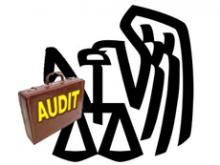Forgot to add an extra income on your tax return? You may not be asked to pay up by the IRS immediately, but do not be surprised to see a mail from them intimating about penalties some eight or nine years later.
It is very important to add every income to your tax return as otherwise it might result in tax evasion charges from the IRS.
IRS audit statute of limitations
It is the time period allotted to the IRS within which the agency has to resolve any problems with a tax account. After this time period, the tax payer with whose account the agency has found discrepancies will not be liable to face any charges from the agency. Some exceptions do exist, such as, if the amount involved were to be higher than a certain amount, then the IRS can take a longer time period than the stipulated IRS audit statute of limitations.
Otherwise, the usual time period allotted for the IRS to come up with sufficient evidences to show that the person has been evading taxes is 10 years for collection and three years for assessment. It means that the IRS has got 3 years to assess the additional tax from the date of filing the tax return and 10 years to collect the tax owed by the person from the date of assessment.

Exceptions to the statute of limitations
As mentioned earlier in this article, this statute of limitations is also subjected to some exceptions, as different situations demand different set of rules. If the person accused of evading taxes is responsible for an understatement of more than 25 percent of the gross income given on the tax return, then the IRS has got six years to assess the additional tax owed by that person from the time the return was filed.
Penalties and interest
Penalties and interest are calculated by the IRS if it finds discrepancies in the reported income. Unreported income will warrant the payment of penalties by the tax payer and the most common penalty awarded is one half of 1 percent for each month the tax is unpaid on the unreported income.
IRS might take some time, even years, in some cases to find out if there are any unreported incomes in the tax returns of a person. Therefore, even if you think you managed to escape from IRS, the relief might be short-lived.
Google+

